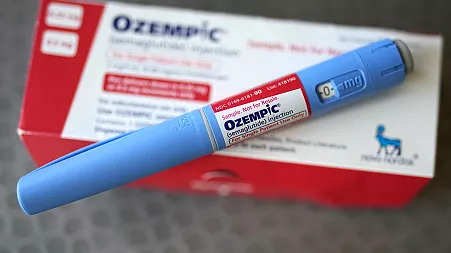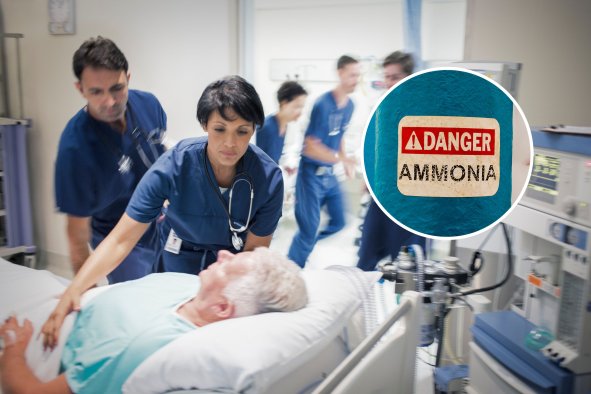Kale. Berries. Fish oil. Kimchi. Dozens of foods are touted for their "anti-cancer" properties—but they don't work as advertised, according to Dr. Elisa Port.
Port hears about all kinds of dietary remedies as a breast surgeon at Mount Sinai's Icahn School of Medicine. However, there's no such thing as a "superfood or a magic potion" for preventing breast cancer, she told Newsweek.
"Immune boosters, supplements, you have to be super careful about these things because everyone is looking for a magic potion, and women who are diagnosed with cancer are very, very vulnerable," Port said.
The global dietary supplements industry is rapidly growing. Mordor Intelligence, a market research firm, projects the market size to reach nearly $140 billion in 2024.
Many of these supplements contain ingredients that are advertised as cancer preventatives. But shoppers should exercise caution, since nonprescription capsules can cause more harm than good.
"There are a lot of people out there with very interesting claims," Port said. "We have to be very careful about that stuff because most of these supplements are not regulated, so you don't know what you're getting—and they don't even have to be consistent from batch to batch."
In fact, a lot of supplements can interfere with medications prescribed for breast cancer, according to Port.
Cancer diagnoses usually come with uncertainty. Many people look for answers in the past, trying to pin the illness on a certain habit. Others set their sights on the future, purchasing any obscure remedy that offers a cure.
It's a normal, understandable response to fear. But a broccoli-rich diet is rarely a cause or a cure, Port said.
"I usually tell women, the good news is it's not your fault. There's nothing you did," she said. "The bad news is there's not a lot you can do other than go with the recommended treatments to change your risk of this coming back."
Although there's no silver bullet on a grocery store's shelves, certain lifestyle changes can reduce the risk of developing breast cancer.
Maintaining a healthy body weight is associated with a lower risk, Port said. Being overweight increases the chance of developing breast cancer, and in diagnosed women, the chance of relapse.
Women with higher alcohol intakes are also at a heightened risk of breast cancer. Port advises patients to stick to a "moderate" intake of three to five drinks per week—which can be easier said than done.
"Even just having a glass of wine every night, that adds up to seven," Port said. "And typically, on the weekends, someone would have one or two more. You can see how it adds up."
One of the easiest ways to protect against breast cancer is to perform regular self-examinations. The sooner the disease is detected, the less likely it is that aggressive treatment will be required, Port said. She recommends that women check for lumps, bumps, rashes or redness on and around the breasts, including near the lymph nodes in the underarm. Any changes to the nipple—including discharge, dimpling or indents on the skin—should be reported to a doctor.
Port recommends self-exams each month on a "consistent, not obsessive" schedule. For those who get periods, she suggests self-examining after the menstrual cycle, when hormone-related lumps and bumps are least likely to flare.
No abnormality is too small for a doctor's attention, Port emphasized. Breast cancer can feel different to different people, and it doesn't hurt to get a professional opinion.
"Any lump really can be a breast cancer," Port said. "In older, post-menopausal women, a new lump is cancer until proven otherwise."
In-office tests should also be incorporated into women's schedules. Physicians recommend getting a mammogram each year after turning 40, but in patients with a family history of early-onset breast cancer, testing can start even sooner.
Sonograms and MRIs are also used to monitor women with dense breasts or very high genetic risks of developing cancer. It's important not to forgo the recommended medical tests, which are more accurate than self-examinations, Port said.
"In 2024, we're finding cancers smaller and smaller," Port said. "Often they are so small that a woman wouldn't even feel them or notice them on any type of physical exam. That's why mammograms save lives, because they pick cancers up earlier."
Breast cancer can be a frightening diagnosis, but with modern medicine, the outlook is more hopeful than ever.
"The one thing that everyone should know about breast cancer is that now, in 2024, it is very treatable and curable," Port said. "There's so much room for optimism."
Disclaimer: The copyright of this article belongs to the original author. Reposting this article is solely for the purpose of information dissemination and does not constitute any investment advice. If there is any infringement, please contact us immediately. We will make corrections or deletions as necessary. Thank you.




